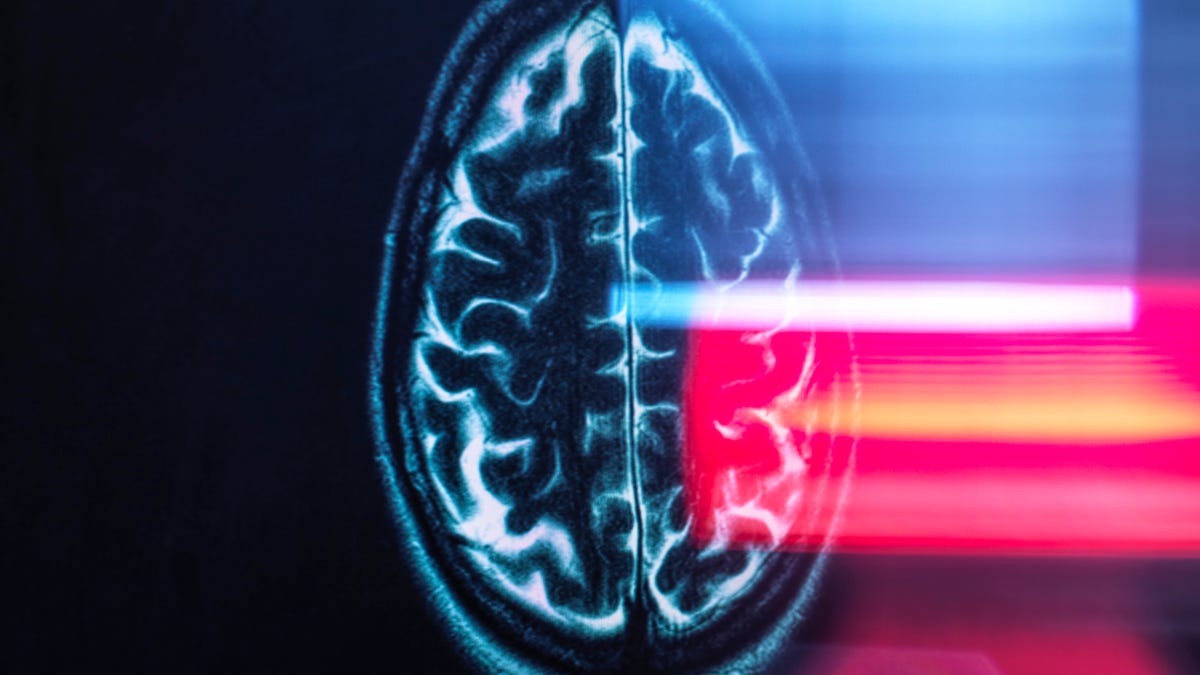Researchers use AI to predict Alzheimer's disease 7 years before clinical diagnosis
IBM and Pfizer developed an AI that looks at speech patterns over time for markers of the crippling degenerative disease.

Alzheimer's is a crippling degenerative disease, but the answer to early diagnosis might lie in speech.
I was afraid my grandmother wouldn't remember who I was the last time I saw her in person. She looked small and frail in the wheelchair but I could still see the sparkle in her eyes. Our relationship was complicated, but when she said she remembered me, none of it mattered any more.
I sat by her wheelchair and tried to cram in a decade of memories and happenings. Every few moments, it was like she'd reset, and would ask what I'd been up to all these years. We'd go through everything again. We only had a few precious hours before she didn't remember who I was anymore, no matter how many stories I told her.
Alzheimer's is a degenerative brain disease that over 5 million Americans live with, and that number is only expected to grow, according to the Alzheimer's Association. But IBM Research and Pfizer have developed a new AI model that uses quick speech tests to help predict the onset of the disease in healthy people, the companies said Thursday. The AI's accuracy is about 70%, potentially giving people up to seven years' notice before symptoms of cognitive decline.
The disease can seem like it sneaks in, beginning with symptoms that may be misinterpreted as typical age-related changes. These early warning flags are important to recognize, as they're a sign of coming cognitive decline. The sooner clinicians can detect Alzheimer's disease, the more that can be done to help a patient, even though there's no cure to date.
IBM research teams work with healthcare partners and clinicians to design AI models that can analyze biomarkers that individuals exhibit in their natural environments.
Going back in time
Researchers are using AI to predict Alzheimer's disease seven years before clinical diagnosis. To train the AI, IBM and Pfizer researchers used data from the Framingham Heart Study, a longitudinal study tracking health in over 5,000 people and their families since 1948. Data collected in these studies can better help clinicians pinpoint risk factors for certain diseases over time.
Ajay Royyuru, the vice president of healthcare and life sciences research at IBM, spoke with me over video chat about the new predictive Alzheimer's AI technology. Royyuru said that while the researchers at IBM were focused on using new methods of technology to improve healthcare, speech stood out as an important observable factor.
"Our analysis was to go back and look at the features and variables we can extract from tests that were done in earlier time points, and ask which of those are predictors to future clinical diagnosis of Alzheimer's. And if that's possible, with what accuracy?" Royyuru said. "It is possible. It actually does predict future Alzheimer's."
The AI model was trained to analyze short language samples from the study's participants, recorded during a cognitive test, to predict the eventual onset of Alzheimer's disease. The AI also analyzed transcriptions of the speech samples to better recognize subtle changes that might have otherwise gone unnoticed.
The administered test asks people to look at a drawing and describe what they see. What the patient describes is what IBM then analyzes with its AI.
Early diagnosis can mean a big difference when it comes to Alzheimer's disease.
Participants in the Framingham Heart Study were considered cognitively healthy, and were representative of the general population, instead of just high-risk groups with a genetic history or predisposition to the disease. In addition, following the participants over the course of much of their lifetimes also allowed for researchers to see if they developed Alzheimer's later in life.
By using the Framingham datasets, Royyuru's team could roll back the clock and determine that on average, seven years prior to a clinical diagnosis, linguistic markers were already indicating who is likely to have Alzheimer's with an accuracy rate of 20 to 30%.
There's no specific word or phrase that stands out, Royyuru said. Instead, it's patterns of word usage that indicate cognitive change.
If you have a family history of Alzheimer's, logging your own cognitive state over time could also be helpful, Royyuru said. Then if something were to change, you would have a baseline that wasn't a textbook definition of "normal," he added, therefore personalizing the monitoring of changes.
The future of Alzheimer's
Seven years can mean a lot when it comes to Alzheimer's. Royyuru said that many Alzheimer's clinical trials struggle or fail because participants aren't all at the same stage of the disease, and many are often unfortunately beyond help.
"If you use these sort of digital biomarkers and speech, you can mark the patient in the stage [of the disease] more appropriately," Royyuru said. This would be helpful for future research.
The research team's work in predicting Alzheimer's is the first of its kind in terms of studying linguistics and speech, according to Royyuru. Prior predictive work has looked at biomarkers in the blood and brain, but the markers found in speech occur much earlier in time and are easy to collect.
"It becomes easier to actually advance the window of when you might be able to spot some change and seek the appropriate clinical help to diagnose it properly and address it," Royyuru said.
The research team hopes that going forward, using speech and digital biomarkers will allow for targeted recruitment for therapies and intervention. This may actually improve the odds of success for therapies in the future.

